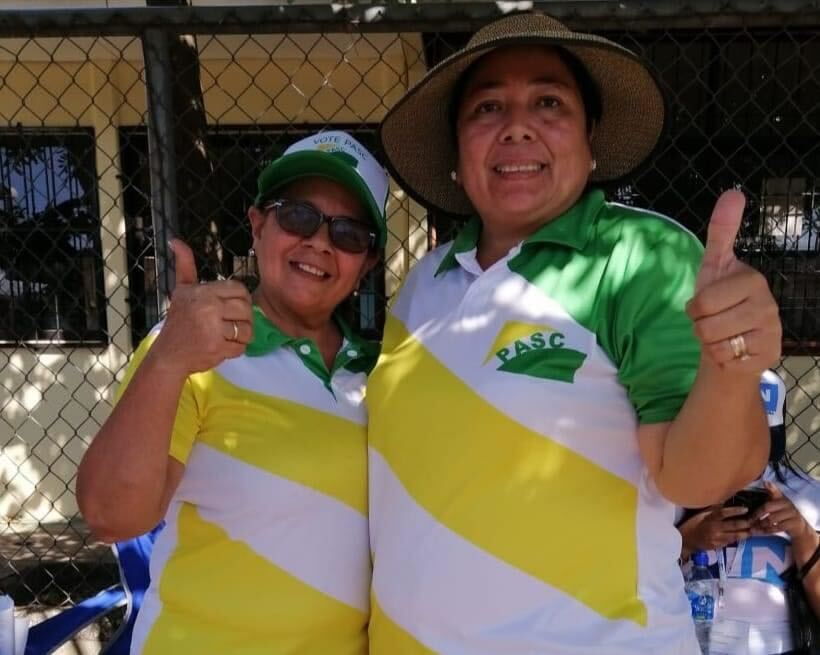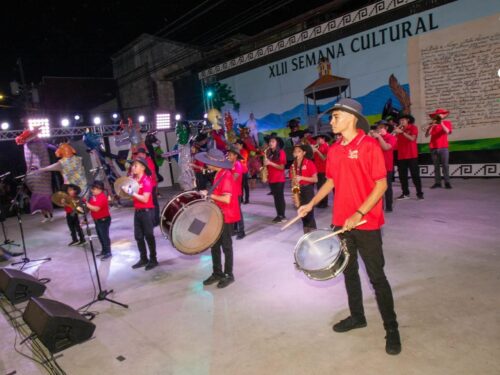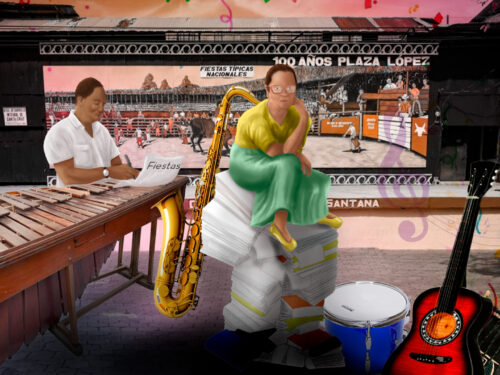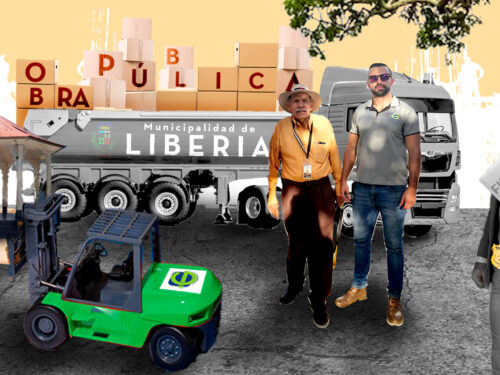
In a telephone interview with The Voice, Sully Gómez gave her version of how she became a producer of cultural events for the Municipality of Santa Cruz and achieved million-dollar contracts. This is part of the interview.
What exactly do you sell? What is your role?
My role is… Let’s say there’s a festival, let’s call it a Festival of Lights. They (the municipality) create the program and request from me what they (the municipality) want, and I contract. What I have to do is hire the groups and individuals and pay them.
Basically you act as an intermediary?
Yes, and take care of the programming. I have to ensure that everything is fulfilled, that what is requested is carried out, that the bands and groups are present. That what is contracted is executed.
Mrs. Sully and the benefit you receive for doing this?
10% of what is contracted or requested.
Since when have you been doing this?
Uhhh my dear, I’ve been doing it for more than 20 years. I have served Coopeguanacaste for many years.
In what exactly?
Well, I am an educator in physical education. I have always organized sports events. I worked at María Leal School for over 30 years. I have always done graduations, decorations.
The Santa Cruz Municipality has disbursed more than 400 million colones to produce cultural events for retired teacher and former 2020 councilor candidate from the Authentic Santacruz Ruling Party (spanish acronym: PASC), Sully María Gómez Loáiciga. Six of those contracts, totaling ¢56.1 million colones (around $106,800), were awarded when the provider did not have a commercial license.
In cultural production, specifically. How long have you been involved in cultural production?
Well, in cultural production, to be honest, more or less, what can I say, with experience, experience, practically since I was hired by Coopeguanacaste. It was a tender that came out. Someone who had previously been hired told me, “Sully, if you do events like let’s say weddings, birthdays, it wasn’t as extensive, why don’t you do it?” So, I started competing. People think it’s because I was on a ballot with Mr. Jorge.
How long ago did you register as a small or medium-sized enterprise (spanish acronym: PYME)?
I don’t know. Must be about three or four years ago. It was recommended to me by a sister-in-law who has since died. I didn’t even know what it was.
At Coopeguanacaste, you began gaining experience in event planning and management?
In general, yes. Especially during their assemblies. The truth is that who made me grow was Coopeguanacaste. They helped me grow as a business in furniture, tablecloths, decorations. They started believing in me many years ago. Yes, and in my company Hetzibá.
How did you find out about the contracts that the municipality was awarding?
It was through a man who used to work for the municipality back then. He helped me, advised me, and was my counselor for many years.
What was his name?
Alejandro Sandoval, “Alejo”. He would help me. He provided catering services to the municipality. He told me to get into Sicop because it would help grow my business. Believe me, I started as a novice.
You hadn’t sold in public contracts before?
No.
SICOP makes things a lot easier, but it’s also complex.
Of course, I had to seek a lot of advice. Someone helped me, completely independent of the municipality, and provided guidance.
Sully María Gómez Loáiciga, a former candidate for council member with the party in power, Authentic Santacruceño, won a contract bid in January of 2023 with a price of ¢7.4 million ($14,100), but that same contract became “inflated” and after 16 months, the contract winner has collected ¢250 million ($477,000).
Do you work alone? A graduation party is not the same as having to produce events like the ones you were hired for. How do you solve it?
I have the ability of knowing many people in the field and I have always asked for collaboration.
It’s a lot of details for just one person.
Yes, I have to have many contacts and some recommend others and then you get to know them. For example, for culture week the commission makes a schedule, a budget. It’s my job to then call people and pay them.
Don’t you have to do the production of the event?
Sometimes yes. But, for example, in the cultural week they have already met and made a budget. They have their people there and they have people trained for that, of course.
What is your relationship with the mayor and the vice mayor?
I didn’t have much of a relationship with the mayor. In fact, when I entered the party it was because someone else told me. He came to look for me at my house and I told him that I don’t like politics. I have never been into it and to this day I don’t like it.
But did you share the ballot with him?
Yes, but it was technically not him who looked for me but rather someone who works with him who came to look for me at my house (…) My relationship with Don Jorge is: Hello Mr. Jorge, of respect. When an event arrives he tells me ‘Mrs. Sully, thank you very much, you were very excellent.’ That, nothing more. A relationship of hello, greetings and respect.
You start contracting with the municipality after sharing a ballot with the mayor. Do you see a conflict of interest in that?
Out of ignorance, I believe, people believe that those ¢200 million come to me and that I distribute that. No, no, I earn 10% and that’s it.
Who in the municipality was in charge of verifying that what was contracted was actually delivered?
Who requested the contract
Beyond that, did they ask you for a report?
The thing is, if they asked me for a marimba, the marimba was there. If he hired a cimarrona (small band that accompanies traditional mask parades), the cimarrona was there. It wasn’t going to arrive. Someone had hired her and had to pay her.
Who supervised whether a cimarrona that was hired for two-hours played both hours?
Me.
But who kept track of you?
The person who requested the event. They were there most times.
Who motivated you to get on the ballot?
Elías Espinoza (former councilor).
Did he stay?
Yes. Everyone knows me and I haven’t done anything to embarrass myself.
These articles are also part of this investigation:
- Santa Cruz Municipality awards multi-million contracts to former candidate for councilor from the ruling party
- Contract from the Municipality of Santa Cruz was won for $14,100 but final collection rose to more than $477,000

GuanaData is a project of The Voice of Guanacaste since 2016 that has investigated the administration of public funds in the municipalities of the province. We delve into the budgets of local governments in order to make public functions transparent and combat corruption. In 2020, we also investigated municipalities outside of Guanacaste: San Carlos, Puntarenas, Talamanca and Limón. Since 2022, we’ve been working on developing an artificial intelligence (AI) tool to streamline and automate the identification of irregularities in public procurement through the Integrated Public Procurement System (Spanish acronym: SICOP). The engineering behind the AI tool has been developed by the Latin American Center for Journalistic Investigation (Spanish acronym: CLIP) and journalists Andrea Rodríguez and Angélica Castro, who were also the database analysts who identified this and other cases of irregularities in public administration.







Comments